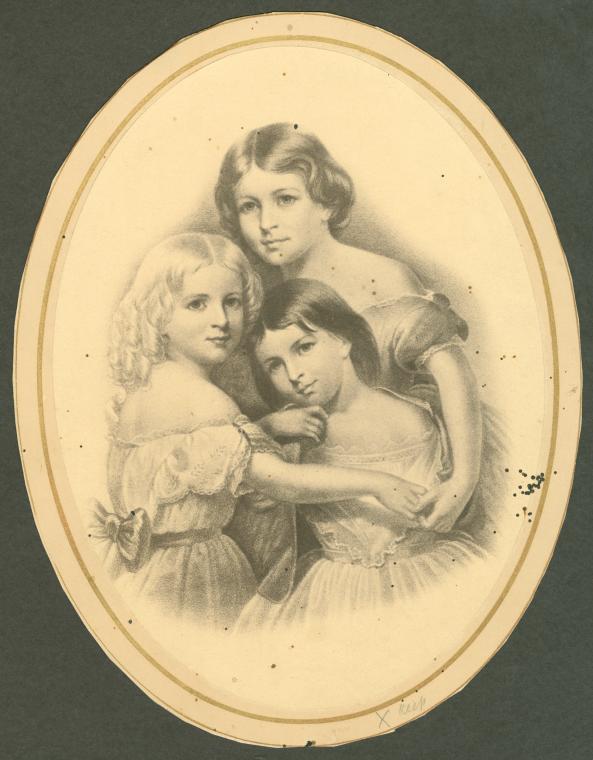
Henry Wadsworth Longfellow (born February 27, 1807; died March 24, 1882) was one of the most widely known and best-loved American poets of the 19th century. In July 1843 he married his second wife Frances Appleton, and the couple had six children: Charles Appleton (1844–1893), Ernest Wadsworth (1845–1921), Fanny (1847–1848), Alice Mary (1850–1928), Edith (1853–1915), and Anne Allegra (1855–1934).
One of his most famous poems is The Children’s Hour, first published in the September 1860 edition of The Atlantic Monthly. The poet’s three small daughters, “grave Alice,” “laughing Allegra,” and “Edith with golden hair,” assault him by surprise; then “They almost devour me with kisses, / Their arms about me entwine,” and like a besieged citadel, he must surrender.
The Children’s Hour
by Henry Wadsworth Longfellow
Between the dark and the daylight,
When the night is beginning to lower,
Comes a pause in the day’s occupations,
That is known as the Children’s Hour.
I hear in the chamber above me
The patter of little feet,
The sound of a door that is opened,
And voices soft and sweet.
From my study I see in the lamplight,
Descending the broad hall stair,
Grave Alice, and laughing Allegra,
And Edith with golden hair.
A whisper, and then a silence:
Yet I know by their merry eyes
They are plotting and planning together
To take me by surprise.
A sudden rush from the stairway,
A sudden raid from the hall!
By three doors left unguarded
They enter my castle wall!
They climb up into my turret
O’er the arms and back of my chair;
If I try to escape, they surround me;
They seem to be everywhere.
They almost devour me with kisses,
Their arms about me entwine,
Till I think of the Bishop of Bingen
In his Mouse-Tower on the Rhine!
Do you think, O blue-eyed banditti,
Because you have scaled the wall,
Such an old mustache as I am
Is not a match for you all!
I have you fast in my fortress,
And will not let you depart,
But put you down into the dungeon
In the round-tower of my heart.
And there will I keep you forever,
Yes, forever and a day,
Till the walls shall crumble to ruin,
And moulder in dust away!
Source of the poem: Poetry Foundation, Academy of American Poets and Henry Wadsworth Longfellow website. The poem is included in The Complete Poetical Works of Henry Wadsworth Longfellow, available as Project Gutenberg ebook.
Source of the image: The New York Public Library’s digital collections.
Previously published on Agapeta, 2016/03/05.

